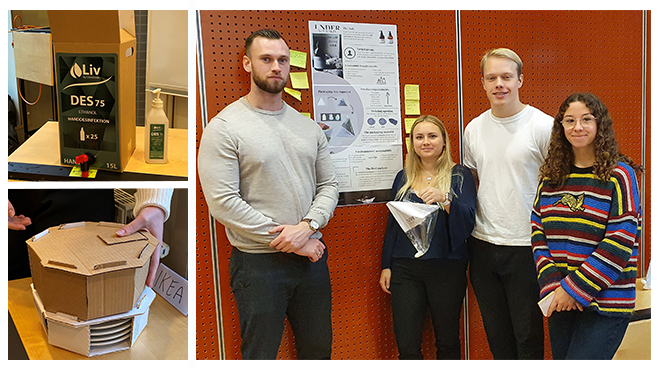Packaging course provides students with valuable lessons and contacts
– Published 27 October 2021

– The diversity of our knowledge and experiences meant that we learned a lot from each other in the project, says Frida Sterner, one of the students in the course "Packaging Technology and Development".
The students taking the course are in their fourth or fifth year of one of LTH's engineering programs and have now completed their projects. They have presented the results, which are prototypes of packaging solutions for various companies in the region.
– Of course, our differences have also given rise to a lot of discussions. Especially about what to prioritize and what waivers we should make on the packaging, adds Mattias Johannesson, Frida Sterner's project colleague.
Good experience for the future
The students agree that the course and project work have given them good experiences for the future. Katrin Molina-Besch, who is responsible for the course, says that it gives students an insight into what it is like to work in a packaging development project.
– It is important that students understand that development projects are about compromising between several different requirements like material, durability and handling as well as that packaging affects several actors in the supply chain.
This type of collaboration between the university and the industry has several positive aspects both short term and in the long run, says Katrin Molina-Besch:
– We get an understanding for what problems and challenges the industry is currently facing and the students are given a real task to solve – it is both fun and valuable. The companies contribute with their perspective and then get a prototype in return that they can continue developing.
There are many indications that the course structure is successful:
– The students make contacts within the industry, and this often leads to collaborations after the course, for example in degree projects and employment. In addition, former students regularly return with projects for the course when they have started working in the industry, says Katrin Molina-Besch.
